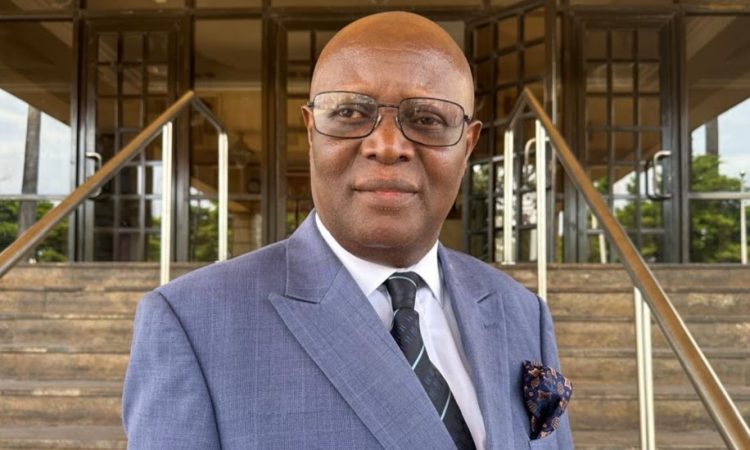
The Service Chiefs who appeared before the House of Representatives last week, for a sectoral briefing on the nation’s security, did not disappoint many Nigerians. For the first time in many years, maybe after the Olusegun Obasanjo era (2007), the people saw and heard military helmsmen address the lawmakers in a manner that commanded attention and respect.
In the past, particularly in the last eight years, military chiefs were used to shielding operators of democracy from accountability and quick to accuse citizens who expressed legitimate anguish over bad governance of unpatriotic acts geared at toppling the system.
The security services, particularly the Department of State Security (DSS) and the Police pretend to be more anxious for the survival of democracy than the practitioners. They had schooled themselves in the art of eye-service and regime protection, rather than in the more ennobling and encompassing task of citizens’ protection.
In the course of assisting politicians to overstay their usefulness at elections, they often take their eyes off the ball; that is when they are not colluding outright to subvert the will of voters. In their naivety and quest for immediate gratification, they do not realise that elections are opportunities for citizens to demand accountability and reward good governance.
Security operators would rather support bad governance (fraudulent incumbency) than provide a level-playing field. They assist crooked politicians to endanger democracy.
At higher levels, in their task of profiling crimes and appraising intelligence in the manner that overall security would be enhanced, security chiefs resorted to playing ethnic politics and refusing to share information.
At that time, insecurity in the North-west was budding, a situation that could have been contained and mitigated. But they refused to call it what it was, buoyed by the tribal instincts of Mr President. Muhammadu Buhari was quick to brand others terrorists, but never did that to his Fulani tribesmen, who were visibly doing damage to life and property all over the place.
Thus, insecurity has blossomed and multiplied in other variants apart from the original Boko Haram insurgency. Banditry and kidnapping have taken over from farming and cattle-rearing as revenue earners for criminals.
And there is the other type, which is to invade communities in the North-central, kill, destroy farms and send the natives to Internally Displaced Persons’ camps. In other places, young men have taken to cultism as a vocation, unleashing mayhem on themselves and their communities. Unemployment remains very high and many who are not properly guarded apply self-help to survive hard times.
But last week, the current Service Chiefs were on point when they told lawmakers that the absence of good governance is largely responsible for insecurity. The Chief of Defence Staff, General Christopher Musa was accompanied to the parley by the Chief of Army Staff, Lt. Gen. TaoreedLagbaja; the Chief of Naval Staff, Vice Admiral Emmanuel Ogala; the Chief of Air Staff, Air Marshal Hassan Abubakar and the Inspector General of Police, Kayode Egbetokun.
An earlier meeting was put off penultimate Thursday, because the Service Chiefs could not make themselves available. They were busy, so they sent representatives, but in the usual cocky, yet baseless manner of lawmakers, those representatives were turned back. The House demanded for their principals.
So, last week, the Service Chiefs sauntered into the venue, did the usual obeisance (bowing and acknowledging the authority of the House), yet remaining ramrod and unsmiling. The truth has to be told.
Gen. Musa enlightened the lawmakers that lack of good governance (as if the lawmakers did not know) was largely responsible for the insecurity that has enveloped the country, insisting that while military and other counter measures could only account for 30 percent of containment, good governance could upstage insecurity by up to 70 percent.
He said: “Anywhere you have good governance, insecurity goes down. Security is not only military security. We have food security, health security, social security and education security. All these always play a role. If we don’t put these put these things in place – good governance- there will be problems.
“In the Northeast, we are able to achieve so much because we have element of good governance. We have seen governors that are willing and doing things to make the people happy and that is why we are having the cases of success we are having.”
The lawmakers sat morosely, as the military chiefs lectured them on the relationship between good governance and security. It was like payback time for the lawmakers who often acted all-knowing and bossy. Granted that lawmakers deserve to be briefed and updated on all sectors from time to time; granted too that some of them are first-timers and that was their first opportunity to hear directly from the men who keep Nigeria safe.
But the question is, what do lawmakers do with the briefings they get in the course of each legislative year and since 1999? What difference have they made to ensure citizens are safer and that there is good governance? Do they really understand that good governance is a guarantee of safety for all?
Every lawmaker who merits that designation does not need to wait and have this innuendo thrown at their faces, in very harmless but pungent style. In temperate climes, such hard-talk could turn a face red. But these lawmakers don’t blush. They have become too engrossed in issues of personal comfort and luxury, and unable to grasp when a metaphor is decidedly injurious.
Lawmakers, who hurriedly passed a Supplementary Appropriation two months to the end of the fiscal year, which content had very little consideration for citizens at a time of economic crisis; who rejected a plea by one of them to undertake payment of WAEC fees for their constituents, are not particularly enamored of concepts such as good governance, let alone summon the ability to discern conversations that are coded and condescending.
But that is what it is; politicians are responsible for the insecurities that have become part and parcel of Nigeria since the military left in 1999. They should be told in clear terms that they are responsible and should begin to deal with it.
The military chiefs also mentioned the challenges of porous borders, the curious role of the judiciary in granting bail to terrorist suspects, who end up constituting more security risk; as well as officials of correctional facilities, who compromise intelligence.
They lamented the indiscriminate planting of IEDs by the evil doers, which are very deadly to humans and machine. Lastly, they mentioned that the minimum pay packet for infantry soldiers who are tackling the criminals in the bushes and forests is not up to N50,000. Very little incentive for the great sacrifice they’re making.
In reporting that meeting, some headlines sounded as if the security chiefs were passing buck and abdicating responsibility. That cannot be true; what happened was that, that was the first time the soldiers looked at the lawmakers in the face to lay the facts on the table. If that is misinterpreted as buck-passing, it misses the point. They are simply saying, let there be good governance; let democracy work and let there be jobs for idle, reduced propensity for crimes.
The challenge the military chiefs posed was for lawmakers to be above suspicion; to make laws that would put more children in schools, provide healthcare and make food available to citizens. Nobody needs their fake and crocodile tears, like the last time that more than 40 rice farmers were slaughtered in Zabarmari, in Jere Local Government Area of Borno State, in November 2020.
When the report got to the National Assembly, members wailed and threatened impeachment. They summoned President Buhari to come explain that carnage. Buhari, as usual ignored the lawmakers and they waxed cold. No courage.
This is where the National Security Adviser (NSA), Mallam Nuhu Ribadu, comes in. The man has assumed the role of an image maker for this government, at a time many don’t trust what people in government say. Ribadu is not your typical Nigerian politician, more of a technocratic socialist in government. He is still credible.
He said insecurity has drastically reduced under Tinubu’s government. He said oil production has improved from 1.1million barrels per day to 1.7million. And for three months there hasn’t been any security breach in the Niger Delta. The numbers of attacks and killings have gone down appreciably in the South-east and North-east, he claimed.
As chairman of the Economic and Financial Crimes Commission (EFCC), Ribadu was dedicated, passionate and refused to compromise the original standards of that office. He was the only EFCC boss that showed courage to investigate governors who passed out in 2007. Some were convicted. But he could not complete the task and since he left, there has been a huge gap. The politicians frustrated him.
That disconnect is what is responsible for lack of good governance and the pervasive insecurity in the land. After Ribadu’s exit, governors and lawmakers no longer regard EFCC. The agency became a huge joke. Politicians, public servants and military chiefs began to stash money in septic tanks and freezers.
Governors began to spend without restraint. When they are done with their allocations, they run to the banks. The states are broke and indebted. No money for health, education, agriculture and good roads. No jobs. Corruption has stolen the peace in the land.
Let Ribadu take a cue from the Service Chiefs. Let him locate the relationship between bad governance and insecurity and confront the politicians with the truth. They are culpable. He should not allow them use him to market a distant and forlorn hope. Lai Mohammed did all that farce and it didn’t work.
Producing two million barrels of crude oil per day does not manufacture security. Allowing the money to work for the people will reduce insecurity and prolong democracy.






